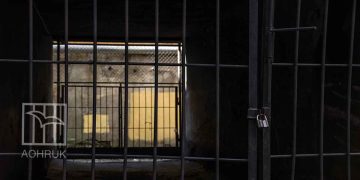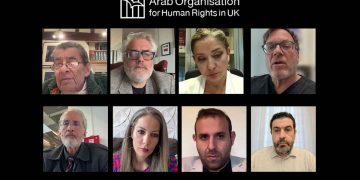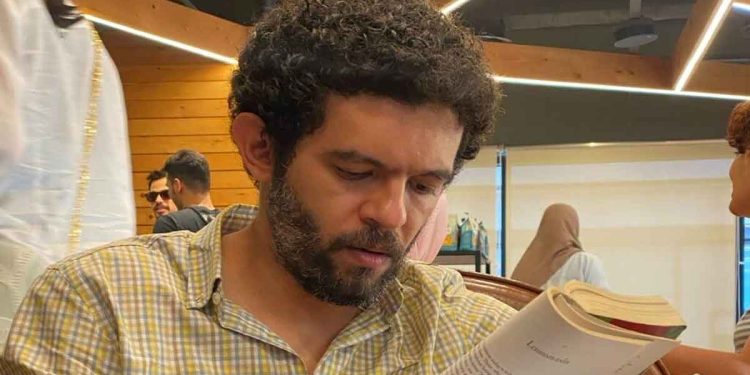In a development that brings renewed attention to the situation of freedom of expression in Egypt, cartoonist and translator Ashraf Omar has been referred to the Criminal Court in case No. 1568 of 2024, following a decision by the Supreme State Security Prosecution accusing him of “participating with a terrorist group in achieving its objectives”, according to his lawyer Khaled Ali.
This referral comes after many months of detention and charges linked to publishing and expression, at a time when growing concerns are being raised about the use of national security accusations against writers, artists, and cultural figures. These concerns highlight the widening restrictions imposed on freedom of expression in the country.
Khaled Ali explained in media statements that Omar’s wife, Nada Moghith, discovered the referral decision by chance during her visit to him at the 10th of Ramadan Prison on Saturday morning. He added that Omar had been transferred on the 18th of this month from his place of detention to the prosecution headquarters in New Cairo without prior notification to him or his defence team. He was informed of the referral alongside others, without being given access to the case file or full details of the accusations.
Omar had been arrested in July of last year and was subjected — according to his family and lawyer — to enforced disappearance for more than two days, during which neither his relatives nor his legal counsel were able to determine his whereabouts.
Upon his subsequent appearance before the Supreme State Security Prosecution, he was charged with “publishing and broadcasting false news, misusing social media, and joining a group established in violation of the law”, without the prosecution presenting concrete evidence supporting these accusations, as stated by his defence.
Earlier this month, the Appeals Chamber issued a decision to extend his pretrial detention for an additional 45 days in the same case, prolonging a period of detention that has already lasted for many months.
The trajectory of the case raises questions that go beyond Ashraf Omar’s individual situation, touching upon the wider environment in which artistic and political expression is treated as an area fraught with legal risks. The expansive use of broadly defined charges such as “joining a terrorist group” or “participating with a group in achieving its objectives” in contexts closely tied to opinion or publishing represents a practice that undermines fair trial guarantees and impacts the right to freedom of expression.
Lengthy periods of detention without full access to the case file or evidence, along with the lack of transparency surrounding stages of the investigation, add to concerns regarding the misuse of counterterrorism laws to restrict artistic creation and publishing.
In cases where security-related accusations are used to pursue matters involving artistic work or publicly expressed opinions, it becomes increasingly difficult to distinguish between judicial procedure and actions that restrict civic space — particularly when pretrial detention extends for periods unrelated to genuine investigative needs.
The referral of Ashraf Omar to the Criminal Court reflects a continuing judicial trajectory in which security considerations intersect with expressive activity, raising deepening concerns about the future of freedom of expression in Egypt, especially with regard to satirical art and cultural work. It is evident that the case extends beyond an individual, prompting broader questions about how opinions and published work are treated, and the implications this has for the cultural and creative landscape in the country.


























